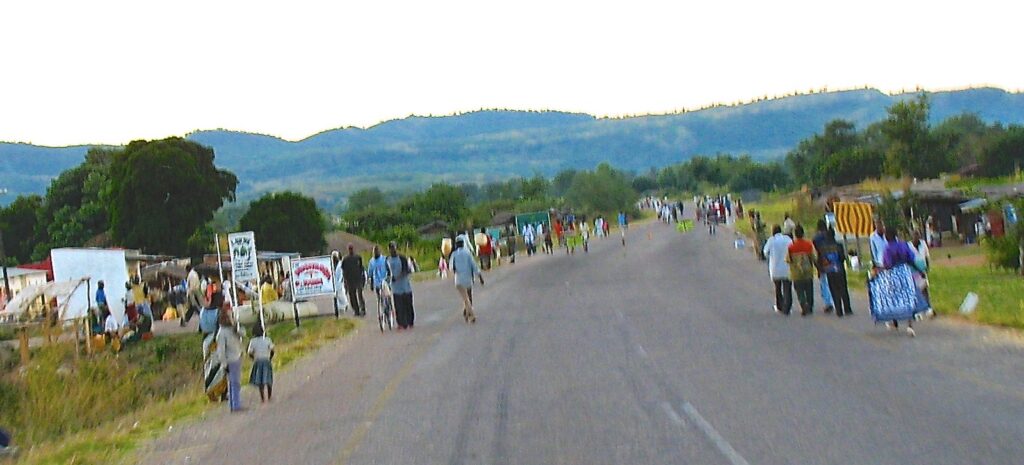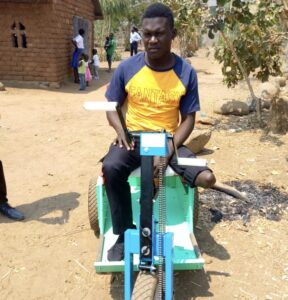
Mbeya Village, Malawi … “I remember when we first arrived in Malawi two things that were most amazing to me,” observes Richard Stephens, a co-founder of the Malawi Project. “One was the bamboo huts that constituted the homes of most of the village population, and second was the number of people walking. I later learned the average Malawian walked 10 miles a day, and one long-time missionary referred to Malawi as ‘a nation walking’. It didn’t take long to realize in the villages almost no one owned a motorized vehicle.”(While vehicle registration doubled from 2008 to 2016 that number still means there were only 17 vehicles for every 1,000 people. This number, 104,800 to 290,935, included motorcycles, trucks, police and government vehicles and agricultural trailers. It compared to 838 per 1,000 in the U.S. in 2018.)
“Seeing people walk long distances was not the most painful part of our early experience. The really painful part was watching those with mobility problems crawling from place to place on their hands and knees. Those scenes really got to us,” Stephens remembers. “This is one reason the Malawi Project has a strong mobility program that being successfully by Action for Progress, the Malawi Project, and Mobility Ministries. This program is helping hundreds of people get up out of the dirt and move about with dignity, safety, and cleanliness.
The following story is yet another example of the value and importance of the mobility units..”
Chrisisi Mtembatani

Chrisisi is 21 years old boy from Mbeya Village near Blantyre. Blantyre is the second largest city in Malawi and serves and the commercial and banking center of the country. and until 2011 he was able to walk like anyone else. Then an accident severely injured his left leg. It became necessary to amputate his leg, and he went from a person of mobility to a physically challenged person, dependent on others to help him move about. As a result, he had to drop out of school. He recalls, “It was sad seeing my friends continue in school and going far with their education. I struggled even to reach church services, or to go to any other public place. I did not have any type of mobility unit, nor could we afford one. I had only a pair of crutches. With them I could not go long distances.”
Today Chisisi has every reason to smile. He can now go back to school and share the same dream for the future as his friends. It is the result of the joint program being carried out by Action for Progress, the Malawi Project, and Mobility Ministries. Chisisi notes, “As if from a dream or a miracle here I am today with a mobility unit. For this I am grateful.”
As the Action for Progress team prepared to leave Mbeya Village one of its member observed, “We have again reached our goal of helping disabled dropouts have the opportunity to go back to school.” No longer will Chisisi be seen crawling, or even as a person in “a nation walking”, Chisisi is part of the nation “riding”.
